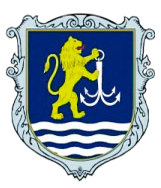INCREASING THE EFFICIENCY AND SOCIAL BENEFITS OF MHP TRANSPORT LOGISTICS WITH THE HELP OF ABM RINKAI TMS INNOVATIVE SYSTEM
Abstract
Introduction. Currently, there is a change in the global trend of logistics in Ukraine towards sustainable and quality development. This will allow to realize the huge logistics potential of Ukraine, to turn logistics into a branch of the national economy, which will increase the competitiveness and profitability of domestic enterprises. It is determined that the management of own and hired transport of the enterprise is carried out using the innovative system ABM Rinkai TMS and includes savings in transport costs for 3 modules: plan, fact, analysis of deviations. It is established that the use of transport monitoring and management system provides all the basic functions necessary to simplify day-to-day delivery management operations. Subject of study. The processes of the TMS ABM Rinkai system are proposed in order to increase the efficiency of transport management, accessibility, transparency and optimization of the entire logistics process. The purpose of writing an article is to study the benefits of the innovative transport logistics system ABM RINKAI TMS MHP to improve quality, efficiency and social utility. Results of work. Considering logistics innovations, one cannot ignore the latest logistics technologies used in planning and information support, which are necessary for efficient use of transport and logistics infrastructures and electronic data processing, production automation and implementation of other new achievements to improve the structure of information flows. ABM Rinkai Rinkai TMS offers: diagnostics and identification of “bottlenecks”; optimization of processes of planning of trade routes, control and analysis of efficiency of transport logistics; introduction of automatic planning of delivery routes on the basis of available orders and cars taking into account various restrictions, economy of transport costs. The effects of transport logistics with ABM Rinkai TMS are determined: increase of transport efficiency; reduction of transport costs; minimization of the required fleet; reduction of total mileage; increase in the number of clients served per route; reducing the number of delays and customer confidence in quality and timely service; improves the quality of processes, does not require the cost of expensive software, is a prerequisite for the effective implementation of logistics activities of the enterprise. Research methodology. In the process of research general and special methods were used, in particular: dialectical, system analysis; stock optimization depending on the level of the logistics system; movement of material and information flows of the logistics system using the model of appointments, the choice of the shortest path and other methods of transport type; formation of the optimal production program with the help of mathematical programming methods. Field of application of results. Economics, transport: management, macro- and microeconomics, computer science, logistics, innovation. Conclusions. The use of the innovative transport logistics system ABM RINKAI TMS MHP is proposed. The motives for the application of innovations in enterprises are established. The need to use logistics innovations, the latest planning technologies and information support is determined; electronic processing of cargo flows; production automation; the efficiency of transport logistics management with ABM Rinkai TMS is calculated.
Downloads
References
2. Шевченко І.В. Світовий досвід ефективного здійснення логістичних процесів на підприємствах. Глобальні та національні проблеми економіки. 2017. Випуск 16. С. 520–524.
3. Касич А.О., Сидоренко А.М. Перспективи активізації інноваційної діяльності на логістичних підприємствах. Науковий вісник Ужгородського національного університету: серія «Міжнародні економічні відносини та світове господарство». 2017. Вип. 15. Ч. 1. С. 147–151.
4. Іванищева А.В. Сучасні тенденції розвитку та інновації в логістиці. Інноваційна економіка: теоретичні та практичні аспекти : монографія / за ред. д. е. н., доц. Є.І. Масленнікова. Вип. 1. Херсон : Грінь Д.С., 2016. С. 344–362.
5. Колодізєва Т.О. Руденко Г.Р. Інноваційні технології в логістиці : навчальний посібник. Харків : Вид. ХНЕУ, 2013. 268 с.
6. Зубар Н.М., Григорак М.Ю. Логістика у ресторанному господарстві : навчальний посібник. Київ : Центр учбової літератури, 2010. 312 с.
7. Зубенко В.О. Використання логістики для інтенсифікації інноваційної діяльності на залізничному транспорті. Вісник економіки транспорту і промисловості. 2011. № 34. С. 181–182.
8. Система управління транспортом. Abmcloud : вебсайт. URL: https://abmcloud.com/abm-soft/tms/.
9. Логістика товарного ринку : монографія / Б.В. Буркинський, В.М. Лисюк, М.Л. Тараканов та ін. ; за ред. Б.В. Буркинського, В.М. Лисюка. Одеса : ІПРЕЕД НАН України, 2018. 244 с.
10. Тараканов М.Л., Маковєєв А.П. Логістичний фактор формування доданої вартості в системі товарних ринків. Економіка: реалії часу. 2015. № 2 (18). С. 28–34.
11. Величко О.П. Сутність логістичного ланцюга та його контроль сучасними агрохолдингами. Вісник соціально-економічних досліджень. 2012. Вип. 3 (46). Ч. 2. С. 27–33.
12. Колесников С.О., Володченко В.В. Сучасні напрями розвитку інновацій та інформаційних технологій в логістичній системі промислових підприємств України. Економічний вісник Донбасу. № 1 (59). 2020. С. 49–56.





